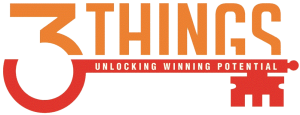Over the last 15 years at sales conferences and workshops, I’ve asked sales teams “When you lose, what are the key reasons?” and “When you win – why?”. Not surprisingly, the answer to the first question is often price, previous poor service, or the customer’s relationship with another supplier. The most consistent answer to the second question, across thousands of salespeople, is “relationships” (I’ve generally assumed it’s a good one and they’re not relying on the customer hating them!).
When I dig a bit deeper into how they define ‘relationships’ I start to get some fuzzy answers. Many have never thought much about it, let alone done a detailed assessment of how they develop and grow relationships. Most of the time, how they define relationships focuses on behaviors that are more closely correlated to rapport – creating comfort and getting on well – rather than specific strategies and actions that shape a strong commercial relationship based on deep understanding and sought-after insights.
Our research indicates there is a significant risk when salespeople confuse relationships with rapport. In fact, those that fail to recognize the difference and develop their capability to build strong commercial relationships risk becoming obsolete in the not-to-distant future. The most basic forms of order-taking functions have already been replaced by online ordering and e-procurement. Even some of the more consultative, advisory selling roles are being rendered obsolete by artificial intelligence and machines that find out what a buyer wants, serves up alternatives, and suggests the best option. For many buyers in the digital age, the best salesperson is no salesperson – plenty of transactions just focus on ‘time well saved’ and getting the best value for money.
In the research, we asked customers about the attributes of the organizations and individuals they choose to buy from. There were two questions specifically about salespeople – why they buy from some and why they don’t buy from others. Interestingly, ‘rapport’ was only 7% of the buying decision, well behind attributes like credibility (21%), knowledge (20%), listening (19%) and communicating value (17%). Compared with the research data from ten years ago, there has been a dramatic shift from ‘drinking to thinking’ – traditional rapport elements based on the coffee call, socializing, and just getting on well don’t cut it in today’s competitive marketplace.
When we asked buyers the reasons why they chose not to buy from certain salespeople, they cited some of the polar opposites; Poor Listening (25%) and Lack of Subject Knowledge (23%), but the really interesting findings were the fact they punished undisciplined and unprepared salespeople; Poor Preparation (16%) and Lack of Responsiveness (10%). More and more customers have less and less time for a ‘chat’ – they’re drowning in information but thirsting for insights and ideas. They want salespeople who understand their situation, have done their homework, have prepared a researched and compelling point of view, ask insightful questions, listen hard, and follow-up with disciplined precision.
There are three key things salespeople need to STOP doing so they win with customers by developing and leveraging relationships, not just rapport (3 P’s):
- PREPARE – Stop ‘winging it’ if you want to win it! Buyers are rewarding salespeople who are doing the legwork for them – keeping an eye on industry trends, investigating the key issues, problems, and opportunities for their customers, and developing insights and ideas that can drive their business further and faster. Disciplined follow up – going one step beyond and staying one step ahead of customer expectations – is also a winner.
- PROBE – Stop having ‘chats’! Customers want commercial conversations, not nice chats with people they like, and certainly not interrogations (machine-gunning them with questions you could probably get the answers to if you did your homework – see #1 above). Buyers valued ‘listening’ (19%) more than twice as much as ‘questioning’ (8%). The ability to ask a handful of insightful questions and then listen and probe (but not pry) is the key to an engaging commercial conversation where the customer has ‘ah-ha!’ moments.
- PERSUADE – Stop selling and get them buying! The fundamental difference between someone feeling they’ve ‘bought’ something, as opposed to feeling they’ve been ‘sold’ to, is ownership of the decision. Changing their perspective through understanding and well packaged insights backed by evidence is critical. Truly persuasive ideas show an intimate understanding of the situation (context), specific solutions (content), and a demonstrated track record of delivering results for similar customers with similar challenges (capability).
Does traditional rapport matter? Of course it does. People don’t buy from people they don’t like if they have good options. Rapport is the ‘door opener’ that helps you get the meeting, break the ice, get better quality answers to your questions, and better receptivity to your recommendations. While rapport is the ticket to the game, relationships built on commercial understanding, conversation capability, and professional disciplines are what it takes to win.


